Home > Media News >

Source: http://www.bbc.com
Winifred Robinson, presenter for Radio 4 show You and Yours, was taken off air on Tuesday - a day after posting her views on the BBC and equal pay.
The consumer programme's focus on Tuesday was the issue of gender pay following Carrie Gracie's resignation as the BBC's China editor.
The BBC confirmed it had replaced Robinson due to impartiality issues.
Gracie left her post, citing pay inequality with male international editors earning more than her.
Gracie's resignation prompted an urgent question in the House of Commons on Tuesday over accusations of unfair pay at the BBC.
The new Culture Secretary Matthew Hancock, told MPs: "the BBC must not only uphold - but be a beacon for - the British values of fairness that this nation holds dear. That includes fair pay and equal pay for equal jobs. "
Culture secretary says BBC must act over gender pay gap
Reality check: What is the extent of the equal pay problem?
Gender pay gap revealed at 500 UK firms
The BBC's head of news, Fran Unsworth, said the issue of pay was a "priority" for the corporation.
It is understood that Winifred Robinson was taken off air for Tuesday's edition of the consumer affairs show only - and will resume presenting the programme according to the Radio 4 schedule.
Robinson is among many BBC workers who have tweeted their support for Gracie.
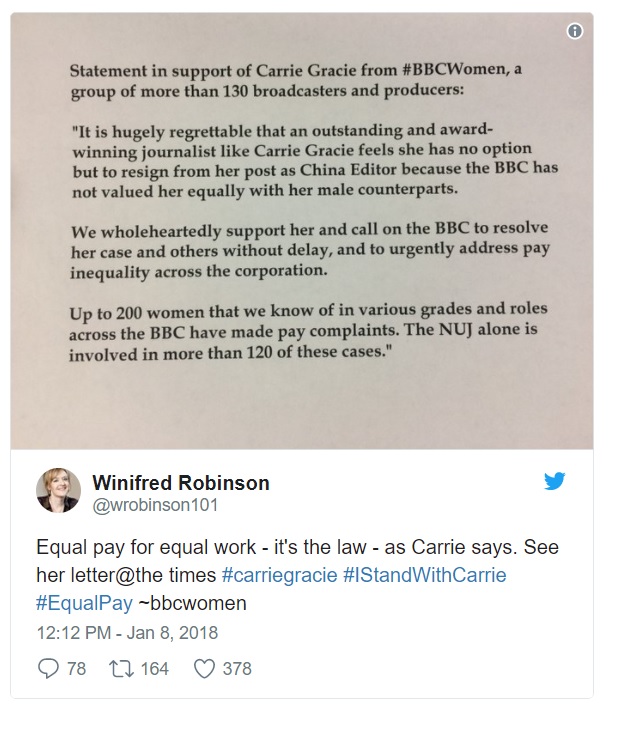
In another tweet, she described the situation involving Gracie as "a mess".
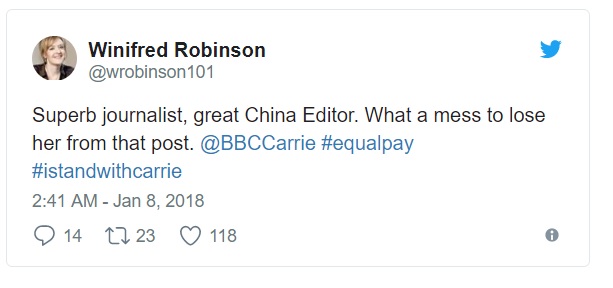
In an open letter issued on Sunday, Gracie - who has been at the BBC for more than 30 years - accused the corporation of having a "secretive and illegal pay culture".
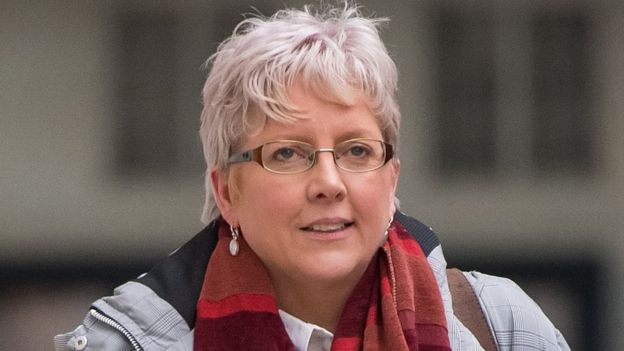
She said she would return to her former post in the TV newsroom in London "where I expect to be paid equally".
Ms Gracie told Radio 4's Woman's Hour the BBC had offered to raise her annual salary to £180,000, but she did not see that as a solution and there would still have been "a big gap between myself and my male peers".
On Twitter, she said she would receive a salary of £145,000 when she returned to her role on the BBC News Channel on 29 January.
Due to the BBC's impartiality rules, presenter Jane Garvey - who had also tweeted support for Ms Gracie - said she was unable to conduct the interview.
Instead, despite Ms Gracie being in the Woman's Hour studio, the interview was carried out by freelance journalist Jane Martinson, from a separate location.
'BBC pay equality is vital'
BBC guidelines dictate that reporters should should not be "exposed to conflicts of interest", and there must be "editorial separation" of those reporting the story.
The UK's equality watchdog is to write to the BBC following the resignation of Gracie.
The Equality and Human Rights Commission said it would consider whether further action is required based on the corporation's response.
In a statement, the new BBC's head of news, Fran Unsworth, said: "BBC pay equality is vital. This issue has been the subject of a lot of debate, both on the BBC and elsewhere, over the past 24 hours."
Unsworth added: "Everyone at the BBC has wanted to do this as quickly as possible, but equally, we need to get it right."
She said she anticipated the BBC audit into presenter pay, which the corporation is working on with accounting firm PWC, would be published by the end of this month.
"The report will help inform a new pay policy at the BBC," she said.
'Right to speak out'
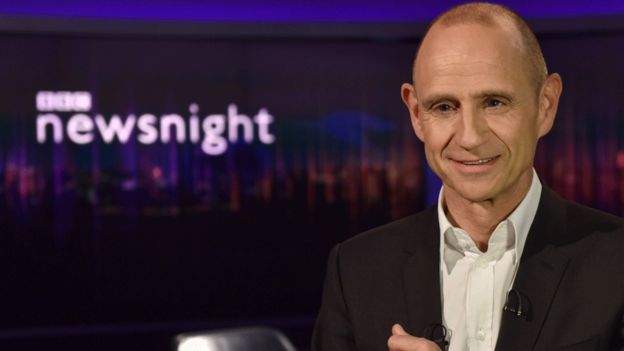
During Tuesday's Commons debate, Stella Creasy, the MP for Walthamstow in east London, asked: "[The Secretary] has the power to give a direction to the BBC about equality of opportunity, so will he use that to ensure every member of staff - male or female - at the BBC is able to express their freedom of expression at work and protect their right to speak out as the best way to get transparency?"
Jess Phillips, MP for Birmingham Yardley, added: "Evan Davis took to presenting Newsnight to talk about this last night, after going on Twitter and giving his very clear opinion... about this issue.
"Why has he not been silenced when women who have spoken up as part of the campaign group have been taken off air?"
Davis discussed the issue with employment lawyer Jennifer Miller and former director of news at BBC World, Sian Kevill, on Monday night.
He had posted a series of tweets giving his views about equal pay at the BBC on the same day.
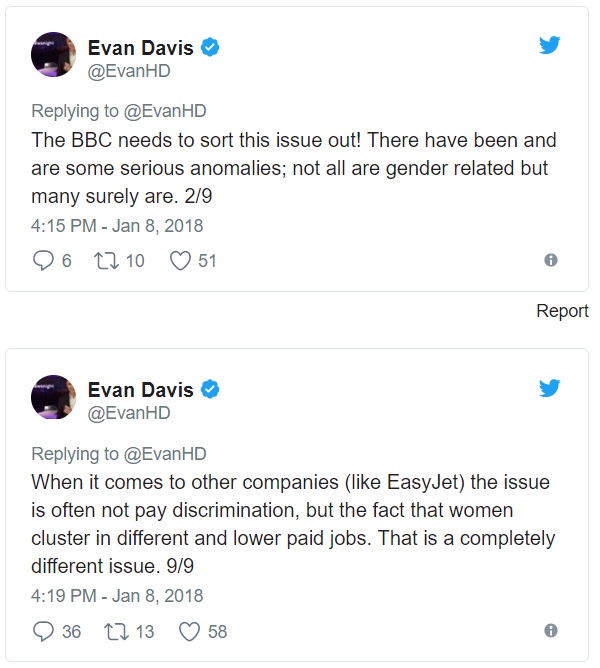
A BBC spokesperson said: "It is down to individual editors and the individual circumstances [on whether individuals are asked to stand aside due to impartiality issues].
The BBC guidelines on impartiality state that: "When dealing with controversial subjects concerning the BBC, our reporting must remain duly impartial, as well as accurate and fair.
"We need to ensure the BBC's impartiality is not brought into question and presenters or reporters are not exposed to potential conflicts of interest.
"There should also be clear editorial separation between those reporting the story and those responsible for presenting the BBC's case."
Right Now

18 Jul, 2025 / 09:39 AM
Uber to invest 300 million-dollar in EV maker Lucid as part of robotaxi deal

21 Jul, 2025 / 08:40 AM
Google’s AI can now call local businesses to check prices and availability on your behalf
Top Stories








